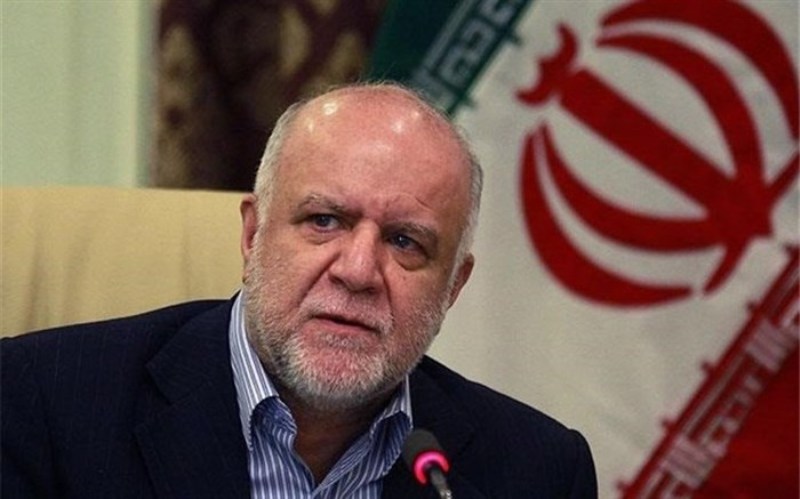
According to IRNA on Friday, in answer to a question about the esxtent of the effect of the sanctions on Iranian oil, Zangeneh said 'These US oil sanctions are not bluff, but very harsh hostilities against the nation of Iran.”
On the promise of Saudi Arabia and the United Arab Emirates to compensate for the Iranian oil’s vacuum in the global market, the Oil Minister said, 'I think they are exaggerating on their oil capacities.'
ON 22 April Trump administration took its last step to zero Iran's oil exports. The White House has announced that since May 2, there has been no extension of any exemption for countries willing to buy Iranian oil.
Although this move was, in fact, a demand that Trump was repeating from the very first days of taking office at the White House, but the global and regional conditions were such that he was not allowed to do so.
In his meeting with members of the National Security Council of the White House less than a month ago, the US president insisted on imposing maximum pressure on Iran by terminating the waivers.
Media and analysts in the West say that Donald Trump's decision to zero Iranian oil export will not lead Iran to change foreign policy, but rather will raise oil prices and escalation in the Persian Gulf.
In response to the White House threats, Iran's foreign ministry spokesman said that refusal to issue waivers for purchase of Iran’s oil was basically unlawful. Seyyed Abbas Mousavi said, 'Given the illegality of the sanctions, the Islamic Republic of Iran has not, in principle, gave no credibility for granting exemptions to sanctions.'
The Foreign Policy website in an analysis titled huge Trump’s Big Iran Oil Gamble wrote that by seeking to cut Iranian exports to zero, the US president is taking a major economic and political risk. According to this analysis, The Trump administration’s announcement Monday that it is ending waivers allowing several countries to keep importing Iranian crude is likely to push up oil prices and sour relations with US friends and rivals alike that rely on Iranian energy, all while stoking more tensions in the waters around the Persian Gulf.
Coming just two weeks after President Donald Trump said he would designate Iran’s Islamic Revolution's Guards Corps as a terrorist organization, Monday’s decision represents Washington’s latest bet that it can ramp up the diplomatic and economic pressure on Tehran without hurting the global economy or angering friends in Europe and Asia.
But it carries economic and political risks, especially with Trump entering a re-election campaign. Hence, the White House also announced Monday morning it is coordinating with Saudi Arabia and the United Arab Emirates, Iran’s regional rivals, to keep any supply disruptions and price hikes in check. Trump and Saudi Crown Prince Mohammed bin Salman spoke earlier this month.
Saudi officials said Monday that they are open to increasing production—but this time only after assessing the oil market impacts of the new US sanctions policy, not before. Saudi Arabia felt burned last year when it increased production to offset Iran sanctions only to be blindsided by the US issuance of waivers.
Most analysts had expected the administration would end up renewing most of the waivers, since oil prices are relatively high, and knocking a million-odd Iranian barrels out of the market would simply send them even higher right at the start of the US summer driving season.
9455**1424
Follow us on Twitter @IrnaEnglish
 solhkhabar | Peace International News Agency Peace International News Agency , Peace News , International Agency News of Peace
solhkhabar | Peace International News Agency Peace International News Agency , Peace News , International Agency News of Peace